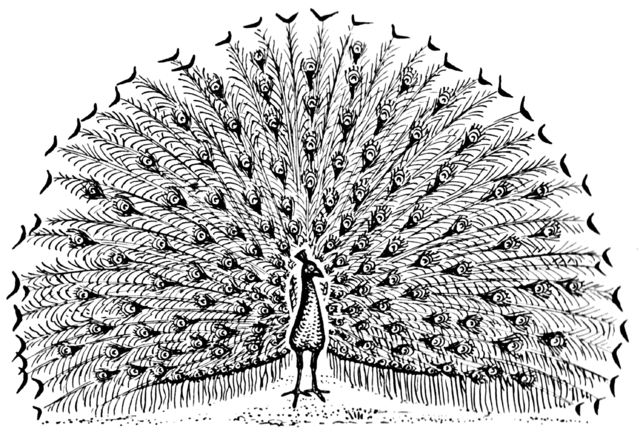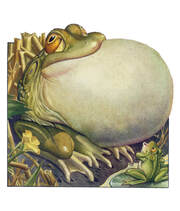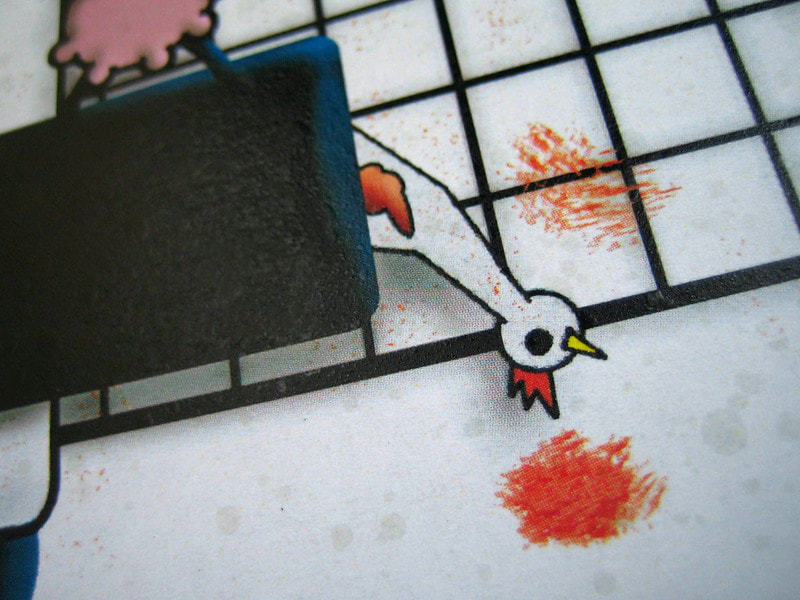 Peacock pride - Pearson Scott Foresman PD Wikimedia
Peacock pride - Pearson Scott Foresman PD Wikimedia Don’t do the wrong thing right. “The thing well done” must be a good one.
Do the undeserving things which you are forced to do, as they deserve, poorly.
The nineteenth and twentieth century created a general belief that people are on Earth to work. The punishing injunction of Genesis* “In the sweat of thy face shalt thou eat bread, till thou return unto the ground” got skilfully translated into a doctrine of Economy, Morals and pillar of Human Society. This forced us all to find dignity in the work we do, educated without much discussion that we live to work and our life finds meaning in work. Do your job, discharge your function! Give the other man hell! Work, so goes the unquestioned axiom, gives meaning to your life! Another sort of opium for the people, leisure-class excepted, (in times when human labour is less and less necessary in abundant, productive societies). It followed “naturally” that all work must be well done, whatever it may happen to be.
Think again: Is that so? Is it so? Always?
Many a fool serves with his competence, energy and a fever of proud perfectionism some stupid industry, wrong cause or a guilty ultimate aim that should be left to fail and rot.
Many of us labour, often against our best interest and values, while covering our face with words like duty, contracts, loyalty and excellence or because everybody else around us are pressing us by competing to do it cheap, fast and best. Instead, we should labour only to survive if we must, work only to live better if we can. So many "sub-optimise" whatever they do even when it results in harming the whole by doing a local part too well, without coordination or perspective. Instead, our creative action, if free, should achieve things we like and deem noble to do within some vision .
Sadly, we know intuitively that from time to time there is something wrong in the grinding, but we are ashamed or feel guilty if we do not perform our technical task beautifully, at quality standards. We are only following instructions, after all everybody is doing it... As if how you own work could be separated from what you do and who you are.
I indulged this error a long time ago and it caused me useless exertion and the persistent regret of being abused. I still lapse from time to time. I love the thing well done! I admire a "pro". It gives one a (false) sense of self-worth.
How do we get so totally "functional" and taken with doing things properly so that we grow servile and morally blind of the final aims and consequences? Are we mere instruments and cogs? Is Homo Faber just a tool in a society turned machine-like?
I understand that honest persons shall do their task properly, in good faith, worth their pay. I respect the toil to survive and feed a family. I join the ideal of building society together. I also understand that in time you are what you do, so that we need to respect our work in order to respect ourselves. But I make a difference between good work and mindless execution. I hate to see good people excelling in stupid task and see great fault in undertaking that serves questionable, absurd and even wicked business.
One can explain, with disapproval, experts and mercenaries doing their questionable trade well, under pretext of "following orders", for fear, greed, a needed wage; but how to judge the honest, good, enthusiastic, gifted fool who sells himself away by compulsion and pride of the “thing well done”, because he cannot help?
Doing the wrong thing as well as you can – to prove like a peacock to yourself or to other people how skilled and professional you are - is getting used indeed.
We should act as persons, with our own mind and personality. Make choices! Do well the worthy thing and - without much fuss - discharge the poor "jobs" we must perform as well but not better than they deserve.
 Ox & frog Source: artist Charles Santore tumblr_2010
Ox & frog Source: artist Charles Santore tumblr_2010 When the aims or the end-results are wrong, do not serve them truly, let them fail.
If in danger, under oppression, undermine them furtively.
Except to this when, under strict control, in total lack of freedom to chose, from a position of weakness, you still want to oppose the unacceptable. Then, do it by excess of zeal, do more than needed, better than best, pump up the ugly frog to such an exaggeration that it may burst.
Do then as I say not as I erred. Don’t do the wrong thing right.
 Dead Chicken (This is how the peacock ends) CC BY-NC 2.0 Dr Case 2007 flickr
Dead Chicken (This is how the peacock ends) CC BY-NC 2.0 Dr Case 2007 flickr *(Genesis 3:19 King James Bible)

 RSS Feed
RSS Feed